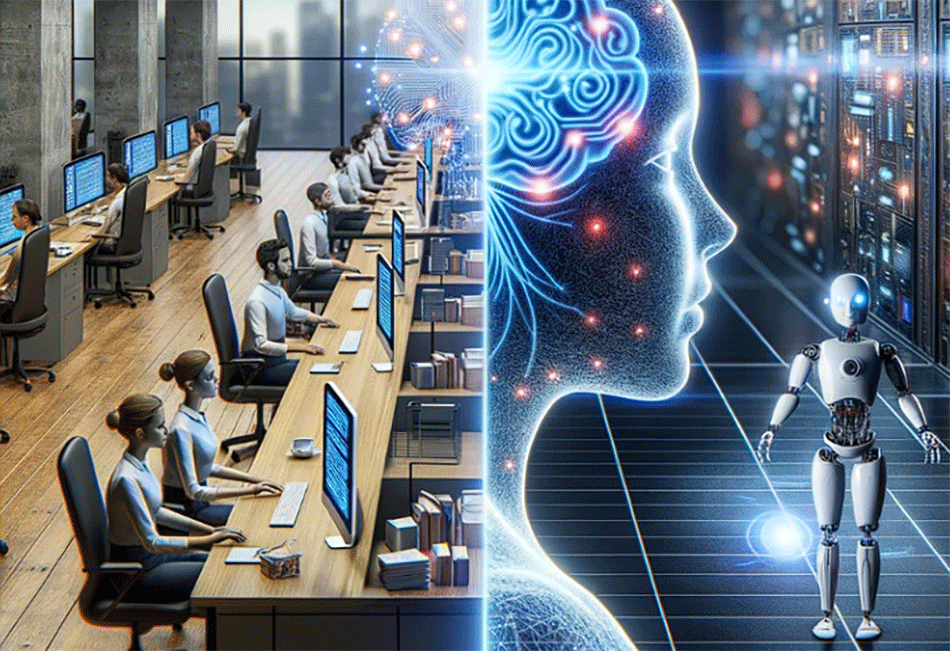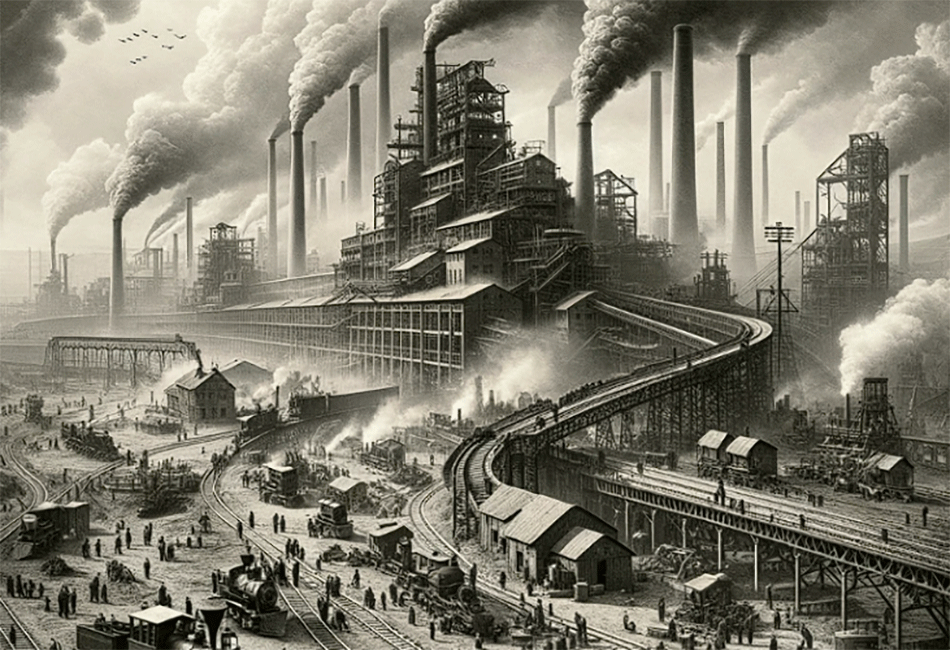Artificial General Intelligence is set to shatter our traditional views on human purpose, sparking not just a technological revolution, but a societal upheaval.
It’s estimated that automation could displace anywhere between 400 million to 800 million people by 2030.
Dramatic? Sure. However this will pale into insignificance compared to the tectonic shift anticipated with the arrival of Artificial General Intelligence (AGI). Experts differ on timing, but some predict it will be achieved by the 2030s or 2040s.
The job impact of AGI is expected to be colossal and will change the world as we know it. It is suggested that AGI will be able to replace 80% of 80% of all jobs within 10-20 years.
Generative AI vs Artificial General Intelligence (AGI)

ChatGPT was launched by OpenAI on November 30, 2022. Within just two months of its launch, it had attracted 100 million monthly active users, making it the fastest-growing consumer software application in history.
ChatGPT is part of a wave of generative AI platforms that has captivated both public and businesses alike this year.
Generative AI specialises in tasks such as text generation, image creation, music composition, and so on. While it can mimic human-like outputs, it doesn’t truly “get” the content. It’s not conscious and can’t reason.
AGI, on the other hand, is a generalist. It is designed to grasp, learn, and apply knowledge across a wide spectrum of tasks. Unlike its generative counterpart, AGI can self-learn, adapt, and make decisions based on reasoning. It is often compared to “consciousness”.
The Evolution of Work, Worth and Values

The concept of work and its relation to individual worth has undergone significant transformations throughout history.
In pre-industrial societies, work was not just a means of survival but also a community endeavour. People’s worth was often measured by their contributions to the community, which included not just labour but also social and moral virtues. Kindness, generosity, and wisdom were highly valued.

The Industrial Revolution shifted the focus from community-based worth to individual productivity. The factory system commodified time and labour, and success started to be measured in material terms—wages, job titles, and possessions.
In the 20th and early 21st centuries, climbing the corporate ladder became a common measure of success. Job titles and salaries became key indicators of a person’s worth, often overshadowing other qualities. The ‘hustle culture’ glorified long hours and high productivity.

Today, ‘hard work’ often eclipses other virtues like kindness and community engagement as a measure of a person’s value. This has resulted in a lopsided value system that favours economic output over social good. This “work defines you” approach is causing stress, widening the gap between the rich and poor.
Moreover, it’s becoming outdated.
With AGI capable of performing tasks that have traditionally been the domain of humans, there is a need to decouple survival from employment. The advent and proliferation of AGI will necessitate a re-evaluation of our societal constructs around survival and purpose.

Enter Universal Basic Income
Imagine a world where your survival isn’t tied to a 9-to-5 job.
That’s where Universal Basic Income (UBI) comes in. It’s a financial safety net for everyone, allowing people to explore life beyond the confines of paid work. UBI proposes a fixed, no-strings-attached cash payout to everyone, regardless of job status or income.
The idea is to provide everyone with a basic living, funded by the additional wealth generated by AI and automation.
UBI frees up people to pursue other meaningful activities like community service, education, or personal growth. It could pave the way for a society rooted in inclusivity and collective well-being, rather than the ruthless competition we know today.
To make this shift, we’ll need more than just good intentions; we’ll need a solid plan. That means setting up rules for ethical AGI use and figuring out how to fund programs like UBI. We need a cultural shift to value human qualities like empathy and creativity over mere productivity. It’s time for a broader definition of what makes a life worthwhile.
AGI is coming, and it’s going to shake up our traditional notions of work and worth. While this transition will have its challenges, it’s also an opportunity to redefine what matters to us as individuals and as a society. The future is still unwritten, and it’s up to us to make it one we want to live in.
All the photos in the article are provided by the company(s) mentioned in the article and are used with permission.
All text and images Copyright Grishma Jashapara
About the Author
 Grishma Jashapara is the Managing Partner at Fusion Associates, with a rich background in entrepreneurship, music management, and executive recruitment. Her expertise lies in spearheading senior appointments within the global fashion and luxury sectors and writing on the big issues of today and tomorrow.
Grishma Jashapara is the Managing Partner at Fusion Associates, with a rich background in entrepreneurship, music management, and executive recruitment. Her expertise lies in spearheading senior appointments within the global fashion and luxury sectors and writing on the big issues of today and tomorrow.



































